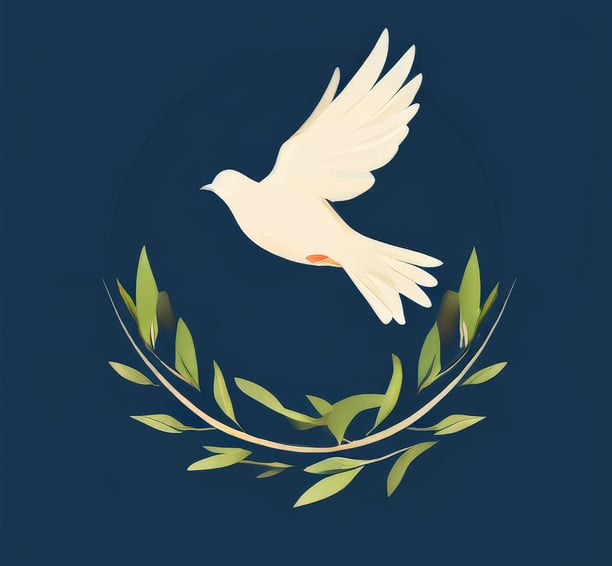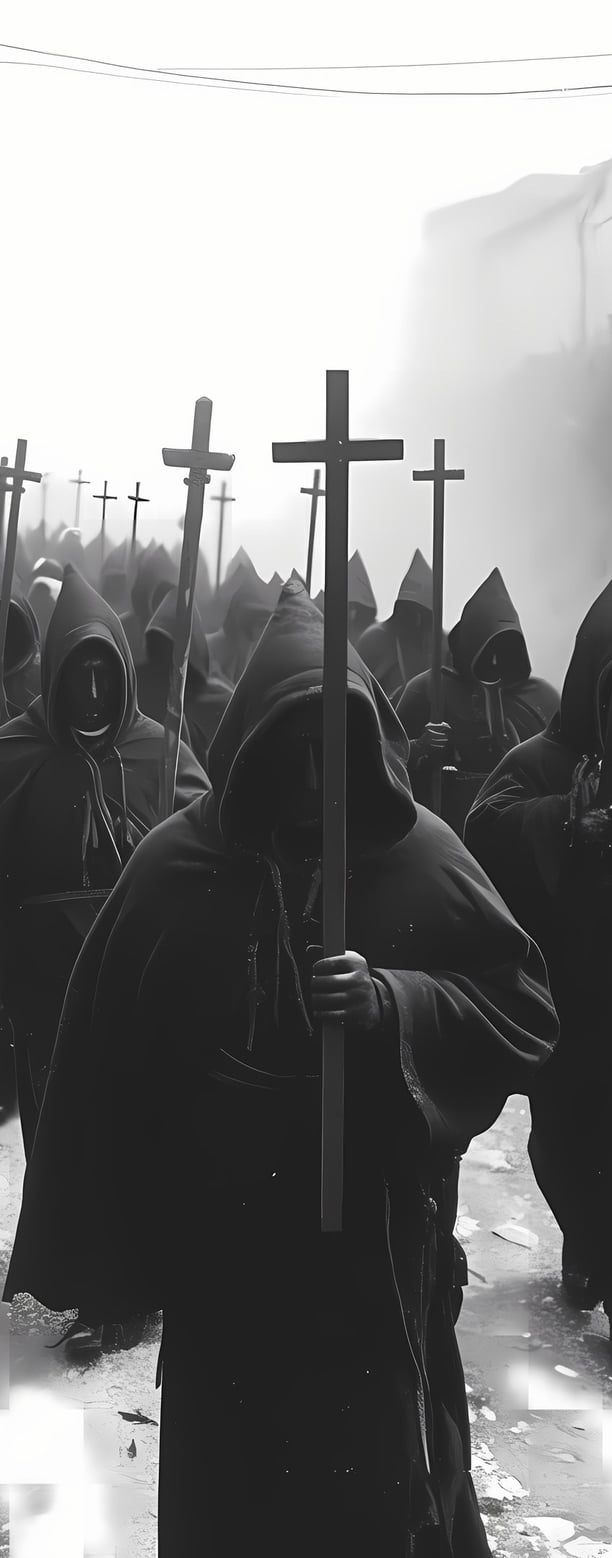Verses about Peace, Kindness and Mercy in the Holy Quran
7/18/20246 min read
Worship Allah [alone] and associate none with Him. And be kind to parents, relatives, orphans, the poor, near and distant neighbors, close friends, [needy] travelers, and those [bondspeople] in your possession. Surely Allah does not like whoever is arrogant, boastful. 4:36
Kind words and forgiveness are better than charity followed by injury. And Allah is Self-Sufficient, Most Forbearing. 2:263
Then afterwards Allah will turn in grace to whoever He wills.And Allah is All-Forgiving, Most Merciful. 9:27
So Allah gave them the reward of this world, as also an excellent reward of the next; and Allah loves those who do good. 3:149
The true servants of the Merciful One are those who walk on the earth gently and when the foolish ones address them, they simply say: “Peace to you”. 25:63
Show forgiveness, enjoin what is good, and turn away from the ignorant. 7:199
If anyone kills a person, it would be as if he killed the whole people: and if anyone saved a life, it would be as if he saved the life of the whole people. 5:32




Verses about Peace, Kindness and Mercy in the Holy Quran
Say, 'O My servants who have transgressed against themselves [by sinning], do not despair of the mercy of Allah. Indeed, Allah forgives all sins. Indeed, it is He who is the Forgiving, the Merciful. 39:53
Surely Allah is Ever Gracious and Most Merciful to humanity. 2:143
Whoever commits evil or wrongs themselves then seeks Allah’s forgiveness will certainly find Allah All-Forgiving, Most Merciful. 4:110
Do not use Allah’s Name in your oaths as an excuse for not doing good, not guarding against evil, or not making peace between people. And Allah is All-Hearing, All-Knowing. 2:224
If the enemy is inclined towards peace, make peace with them. And put your trust in Allah. Indeed, He ˹alone˺ is the All-Hearing, All-Knowing. 8:61
Fight against them ˹if they persecute you˺ until there is no more persecution, and ˹your˺ devotion will be to Allah ˹alone˺. If they stop ˹persecuting you˺, let there be no hostility except against the aggressors. 2:193
You are not ˹there˺ to compel them ˹to believe˺. 88:22
100 Life Instructions from the Quran
https://www.islamiccenterofscranton.com/about/100-life-instructions-from-the-quran#
Violence in the Bible
1. Old Testament (Hebrew Bible)
Deuteronomy 20:16-17:
"But in the cities of these peoples that the Lord your God is giving you as an inheritance, you shall save alive nothing that breathes, but you shall devote them to complete destruction..."
This passage provides instructions for warfare during the conquest of Canaan.
Samuel 15:3:
"Now go and strike Amalek and devote to destruction all that they have. Do not spare them, but kill both man and woman, child and infant, ox and sheep, camel and donkey."
This verse describes God's command to Saul regarding the Amalekites.
Leviticus 24:16:
"Whoever blasphemes the name of the Lord shall surely be put to death."
This verse outlines the punishment for blasphemy.
Exodus 21:20-21:
"If a man strikes his male or female slave with a rod so that the slave dies under his hand, the act shall certainly be avenged; but if the slave survives for a day or two, he is not to be punished, since the slave is his own property."
This passage addresses treatment and ownership of slaves.


Historically, some identifying as Christians have participated in violence, including Genocides
1. The Crusades (1096–1291)
Overview: A series of military campaigns initiated by Christian states to reclaim Jerusalem and the Holy Land from Muslim control.
Atrocities: During the First Crusade, entire Jewish and Muslim communities were massacred in cities like Jerusalem.
Religious Justification: Crusaders were told by church leaders that their actions were divinely sanctioned and would absolve their sins.
2. Spanish Conquest of the Americas (16th Century)
Overview: Spanish and Portuguese colonizers, often accompanied by missionaries, conquered vast territories in the Americas.
Atrocities: Indigenous populations were subjected to massacres, forced labor, and diseases that decimated entire societies. Examples include the destruction of the Aztec and Inca Empires.
Religious Justification: The doctrine of Christianization was used to legitimize the subjugation of indigenous people.
3. Albigensian Crusade (1209–1229)
Overview: A campaign against the Cathars, a Christian sect in southern France deemed heretical by the Catholic Church.
Atrocities: Tens of thousands of Cathars were killed, including the massacre at Béziers in 1209.
Religious Justification: The Pope declared the crusade as necessary to eliminate heresy.
4. Thirty Years' War (1618–1648)
Overview: A conflict in Europe involving Catholic and Protestant states.
Atrocities: Millions died due to warfare, famine, and disease. Civilians were often targeted by opposing sides.
Religious Justification: While largely political, the war was fueled by religious divisions between Catholics and Protestants.
5. European Colonization of Africa (19th–20th Century)
Overview: European powers, often with Christian missionaries, colonized African nations.
Atrocities: Genocides like the Herero and Namaqua genocide (1904–1908) in German South-West Africa involved the killing of tens of thousands of indigenous people.
Religious Justification: Colonizers often claimed they were bringing Christianity and civilization to "savage" peoples.
6. Rwandan Genocide (1994)
Overview: The genocide targeted the Tutsi ethnic group, resulting in the death of approximately 800,000 people.
Involvement: Some Christian leaders and churches were complicit, with clergy participating in or facilitating massacres by Hutu militias.
Note: This was more of an ethnic conflict, but the role of individuals identifying as Christians has been documented.
7. Herero and Namaqua Genocide (1904–1908)
Perpetrator: Germany in German South-West Africa (now Namibia).
Event: German forces, under General Lothar von Trotha, responded to an uprising by the Herero and Nama people with extermination policies. Survivors were driven into the desert, where many died of starvation and dehydration, while others were sent to concentration camps.
Death Toll: Approximately 65,000 Herero (80% of their population) and 10,000 Nama (50% of their population) were killed.
Significance: Widely recognized as the first genocide of the 20th century.
8. Congo Free State Atrocities (1885–1908)
Perpetrator: Belgium under King Leopold II.
Event: Millions of Congolese were forced into labor to extract rubber and ivory. Failure to meet quotas resulted in mutilations, executions, and village massacres.
Death Toll: Estimated at 10 million deaths due to forced labor, starvation, disease, and violence.
Significance: A stark example of colonial greed and brutality disguised as a "civilizing mission."
9. Mau Mau Uprising (1952–1960)
Perpetrator: Britain in colonial Kenya.
Event: During the Mau Mau rebellion, the British government suppressed Kikuyu fighters using detention camps, forced labor, and torture.
Death Toll: Tens of thousands of Kikuyu were killed, and many others endured inhumane conditions in camps.
Significance: Highlighted the violent lengths to which colonial powers went to maintain control.
10. Apartheid-Era Violence in South Africa (1948–1994)
Perpetrator: White minority governments supported by Western countries, including Britain and the U.S.
Event: Black South Africans were subjected to systemic racial oppression, forced removals, massacres (e.g., Sharpeville), and denial of basic rights.
Death Toll: Tens of thousands were killed, and millions displaced over decades.
Significance: Western support for apartheid governments prolonged the suffering.
11. Italian Occupation of Ethiopia (1935–1941)
Perpetrator: Fascist Italy under Mussolini.
Event: Italy used chemical weapons, executed civilians, and conducted mass killings during its occupation. Notable atrocities include the Addis Ababa massacre (1937).
Death Toll: Estimated at 300,000 Ethiopians.
Significance: An attempt to expand Italian imperial power at the expense of Ethiopian sovereignty.
12. French Colonial Violence in Algeria (1954–1962)
Perpetrator: France during the Algerian War of Independence.
Event: France suppressed Algerian independence movements with massacres, mass detentions, and torture. Civilians were targeted in brutal counterinsurgency campaigns.
Death Toll: Estimated at 500,000 to 1.5 million Algerians.
Significance: A violent example of colonial resistance and repression.
13. Bosnian Genocide (1992–1995)
Overview: The genocide occurred during the Bosnian War and primarily targeted Bosniak (Bosnian Muslim) civilians.
Atrocities: Bosnian Serb forces, led by Radovan Karadžić and Ratko Mladić, carried out mass killings, ethnic cleansing, and atrocities. The Srebrenica Massacre alone resulted in the execution of over 8,000 Bosniak men and boys. Thousands of women and girls were subjected to sexual violence.
Death Toll: Over 100,000 Bosniaks were killed during the conflict.
Significance: The Bosnian genocide is considered one of the most horrific events in Europe since World War II.
14. Karabakh Genocide (1988–1994)
Overview: Refers to allegations by Azerbaijan regarding atrocities committed by Armenian forces during the First Nagorno-Karabakh War.
Atrocities: The most notable incident is the Khojaly Massacre in 1992, where 613 Azerbaijani civilians were killed, including women and children. Armenia disputes these claims, citing differing circumstances.
Impact: The conflict caused mass displacement, with hundreds of thousands of Armenians and Azerbaijanis uprooted from their homes.
Significance: The events remain a point of contention, fueling ongoing tensions between Armenia and Azerbaijan.



